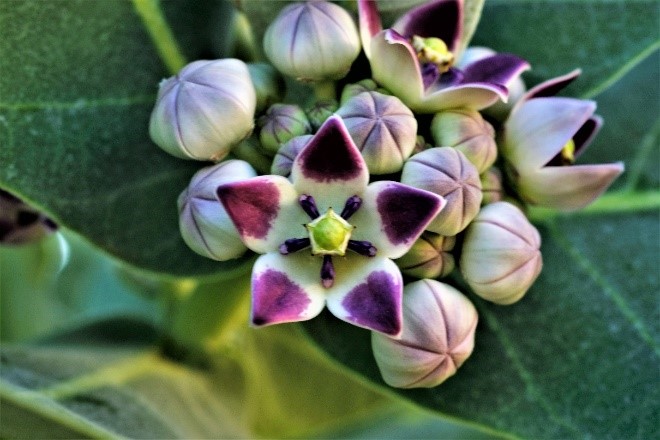Pollen tube growth in Calotropis procera is controlled by environmental changes: does it have an impact on delayed fertilization?
DOI:
https://doi.org/10.26786/1920-7603(2022)659Keywords:
Apocynaceae, Calotropis procera, environmental stress, pollen germination, nectar, delayed fertilizationAbstract
Calotropis procera (Apocynaceae) is a Sudanian plant that grows throughout the eastern Saharo-Arabian region. In Israel, it grows along the Rift Valley under extremely hot and dry climatic conditions. In C. procera, as in many other Apocynaceae, the nectar is secreted in the flowers from the nectaries located inside the stigmatic chamber, with the excess flowing via the capillary system into special reservoirs (cucculi). The nectar has two functions: it is used as a reward to attract pollinating insects and it serves as the germination medium for pollen grains. Under natural conditions the nectar concentration is subjected to a large variability, ranging from 22-68% sucrose. The aim of this study was to elucidate the effects of the natural fluctuations of nectar concentration on pollen germination and pollen tube growth, and their possible role in delaying fertilization in Calotropis procera.
We followed the process of pollen germination under various experimental sucrose concentrations simulating the nectar. We found that the optimal concentration of a sucrose medium for pollen germination is 20%. However, if the already-germinated pollen grains are subjected to high sucrose concentration for different periods of time (between one and three hours), elongation of the pollen tubes is inhibited. In all the experimental groups, the pollen tubes renewed their elongation following a reduction of the sucrose. In conclusion, we found that C. procera pollen grains’ germination is able to adjust to the large fluctuations in sucrose concentration, caused by the changes in temperature and relative humidity conditions of the plant’s habitat during the day. This phenomenon probably enables postponing the fertilization towards a time of better conditions and enables the plant to retain the pollen tubes alive, albeit inactive, and thus allow the plant to overcome temporary harsh conditions and develop seeds.

Downloads
Published
How to Cite
Issue
Section
License
Copyright (c) 2022 Dan Eisikowitch, Adina Mishal

This work is licensed under a Creative Commons Attribution 4.0 International License.
JPE is an open access journal which means that all content is freely available without charge to the user or his/her institution.
Authors who publish with this journal agree to the following terms:
1) Authors retain copyright and grant the journal right of first publication with the work simultaneously licensed under a Creative Commons Attribution License that allows others to share the work with an acknowledgement of the work's authorship and initial publication in this journal.
2) Authors are able to enter into separate, additional contractual arrangements for the non-exclusive distribution of the journal's published version of the work (e.g., post it to an institutional repository or publish it in a book), with an acknowledgement of its initial publication in this journal.
3) Authors are permitted and encouraged to post their work online (e.g., in institutional repositories or on their website) prior to and during the submission process, as it can lead to productive exchanges, as well as earlier and greater citation of published work (See The Effect of Open Access).
To assure a broader targeted audience, content will be included into databases (such as EBSCO) and directories (such as DOAJ).











